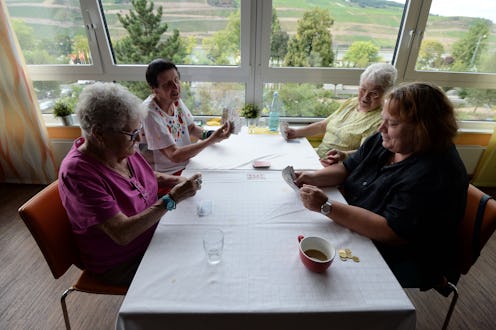Life
Why Longer Life Spans Bring New Health Challenges
When it comes to aging, 30 might be the new 20, but changes in human longevity and resulting changes in our life paths are even more pervasive than that. New demographic data shows that once again, life span has increased around the world, with people in 188 countries living an average of 71 years. This represents a whopping six-year increase from figures for 1990, and researchers publishing in The Lancet also report that healthy life expectancy has climbed by five years as well.
What has caused this most recent bout of life expectancy growth? The world has made strides in fighting diseases like malaria and HIV/AIDs, and in remedying nutritional deficiencies. Improved mother and baby health also has a large impact on average life span, because women of reproductive age (and obviously their babies) have many years left, assuming they survive the birth ordeal. Road injuries, diarrhea, and malaria are still killing many people prematurely, possibly providing suitable targets for new public health efforts that could impact life expectancy greatly (especially in less-developed countries, which still lag behind the top life expectancy countries by about 30 years).
But other top killers, like heart disease and chronic obstructive pulmonary disease, are slower and more difficult to eradicate. The usual idea is that investing in preventative health care measures will save money. It's a nice idea in theory, but the reality is much more complicated — even inexpensive preventative services and procedures must be offered to very many people, but ultimately help only the few who were going to suffer from the medical condition in question, and costs add up super quickly. Providing this care might be the right thing to do, or a good deal for the money spent, but it won't save countries from their aging populations' staggering medical bills.
Instead, we need more real technological revolutions in medicine that will somehow prevent and/or treat the diseases of aging, without tons of patient time spent visiting medical institutions one by one. As you well know, this is a hugely inefficient and expensive process. It would be much better if the medical powers that be could just turn off your cancer like flipping a switch, or if they could surgically reverse heart disease on an outpatient basis without requiring tons of lifestyle and diet cooperation from the patient.
But for now, we will just eat as healthy as we know how, exercise, and be glad for the years in our lives as well as the life in our years, because there aren't any do-overs here. But maybe our children, or theirs, will have it even better. Humans are already evolutionarily unique for having such a long middle-age, and for living so long past their reproductive years. We might as well enjoy what we can of it.
Images: Giphy
